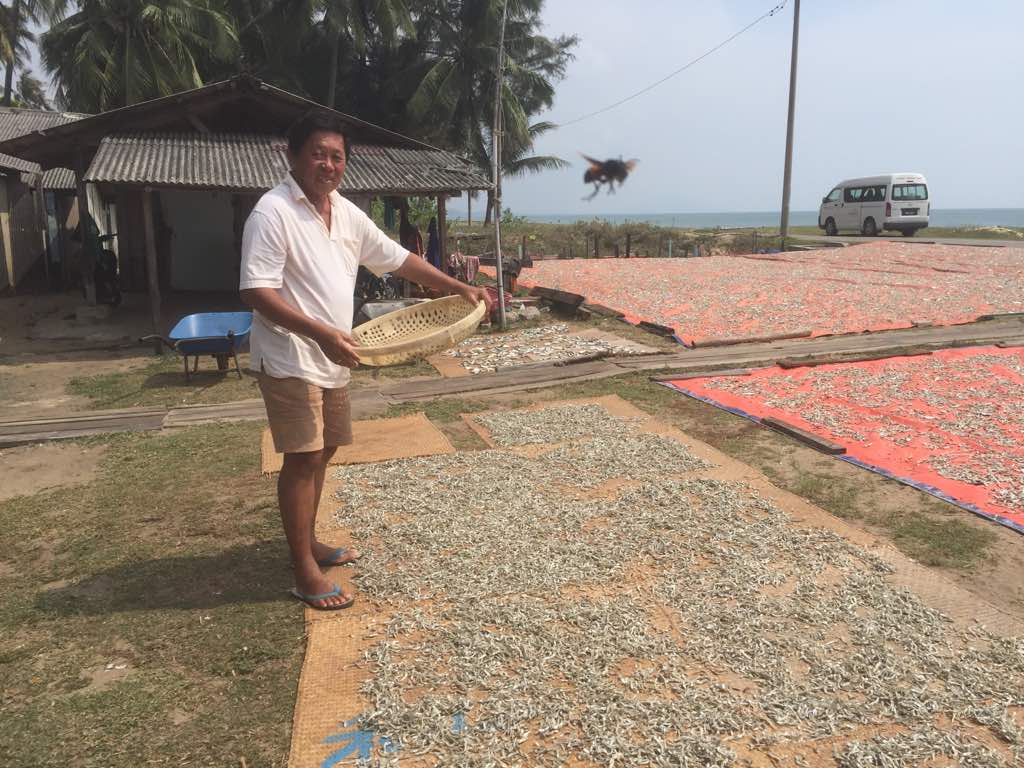by TEAM MAY LEE
In a modest village situated on the sandy shores of Terengganu, the production of ikan bilis has formed the livelihoods of most families for multiple generations.
One of those families is the Ang family. Ang Yong Hock, a second generation fisherman, grins toothily as he talks about his father, a first generation Chinese immigrant who braved the treacherous waters of the South China Sea to raise a family on the east coast of Peninsular Malaysia.
“My father came from the Teochew province of China,” says Ang, 62. His Chinese heritage presents itself in the striking turquoise shade he paints his walls with and a vivid red plaque adorning them, which are emblazoned with broad, sweeping calligraphy strokes; drastically distinguishing his house from the uniformity of typical Malay-style kampung architecture prevalent throughout the village.
Plumes of smoke drift lazily upwards from a Buddhist shrine heavily laden with offerings, mingling with the pungent aroma of sun dried fish in the air.
Ikan bilis has been the livelihood of the Ang family for three generations. Today, Ang employs several labourers in his thriving business.
On a typical day, Ang wakes up at 7-8 o’clock in the morning, and begins his work. He steams ikan bilis and sets them out to dry on large plastic mats, salting them heavily to draw out the moisture. It is a painstaking process- but one he enjoys.

The Brats got to talk with Ang Yong Hock
“Fishing is based on luck,” Ang says ruefully. “Time and tide wait for no man. There are times when there are plentiful catches, and other times when we are just unlucky,” he adds.
Ang’s neighbours, predominantly Malay, also engage in the production of ikan bilis. Ang enjoys close relationships with all his neighbours, by virtue of the Malaysian spirit of gotong-royong.
During busier times when he would require more help, his neighbours would willingly assist him in sorting out the bigger catches. Ang says that he often gives out his ikan bilis to neighbours and helpers willingly, because people tend to reciprocate. “Sharing and giving away what is ours for the sake of others might be the reason we have had such strong bonds in this village,” he says, a grin lighting up his tanned visage.
“I was born in this small kampung,” he remarks. “It is a close-knit community where everybody is related to somebody. The village is peaceful, and little to no crime ever happens here,” he adds.
Every function or celebration is filled with the spirit of togetherness- or, as it is known in Malay, gotong-royong; work is carried out with much joking and laughter, that spirit evident in every soul.
“You and I, we are all the same, in the end,” says Ang with a soft chuckle. “We do not differentiate amongst ourselves in this village. We never have.”
And maybe, just maybe, that is the point of being Malaysian.

